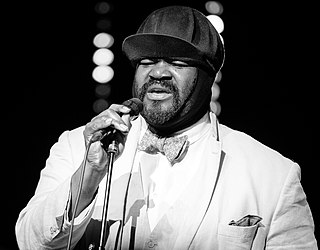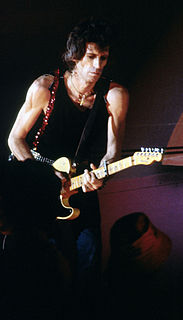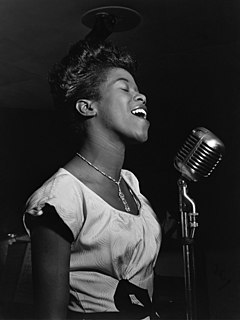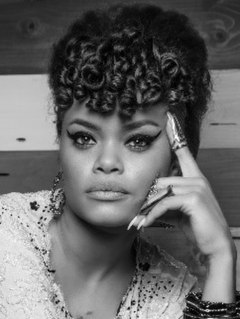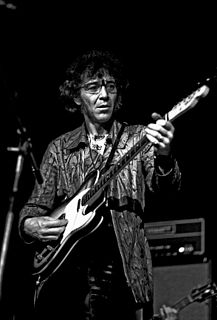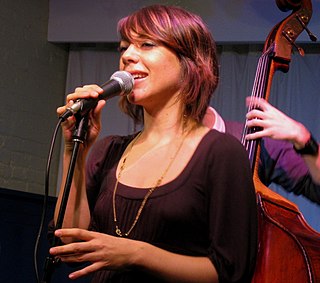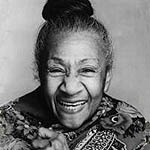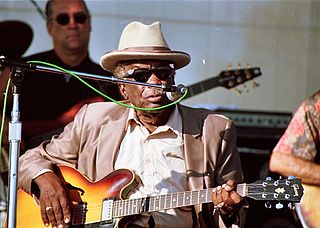A Quote by Gregory Porter
When there's an imbalance in terms of what people get to hear, then that's negative. Then blues, jazz, it will die.
Related Quotes
I was lucky enough to grow up in an era when radio was less formatted. It was really special. You could hear a jazz song then a pop song then a show tune then some jazz. Basically, whatever the DJ felt like playing, he would play. He was educating you and exposing you to things you would never hear otherwise.
I remember the first time I was booked into a jazz club. I was scared to death. I'm not a jazz artist. So I got to the club and spotted this big poster saying, 'Richie Havens, folk jazz artist.' Then I'd go to a rock club and I'm billed as a 'folk rock performer' and in the blues clubs I'd be a 'folk blues entertainer.'
I don't know why people call me a jazz singer, though I guess people associate me with jazz because I was raised in it, from way back. I'm not putting jazz down, but I'm not a jazz singer...I've recorded all kinds of music, but (to them) I'm either a jazz singer or a blues singer. I can't sing a blues – just a right-out blues – but I can put the blues in whatever I sing. I might sing 'Send In the Clowns' and I might stick a little bluesy part in it, or any song. What I want to do, music-wise, is all kinds of music that I like, and I like all kinds of music.
That's why I loved Dinah Washington. She sung jazz, but they called her the Queen of the Blues. She had the control and sophistication of jazz in her note selection and how to attack a song or certain lines, but then attacked it with a painful force of blues behind it. That's why I admired her so much, because of that versatility.
I'm a bluesman moving through a blues-soaked America, a blues-soaked world, a planet where catastrophe and celebration... "Joy and Pain" - sit side by side. The blues started off in some field, in some plantation, in some mind, in some imagination, in some heart. The blues blew over to the next plantation, and then the next state. The blues went south to north, got electrified and even sanctified. The blues got mixed up with jazz and gospel and rock and roll.
Most people think, "Life sucks, and then you die." I disagree. I think life sucks. Then you get cancer. Then you go into chemotherapy. You lose all your hair, you feel bad about yourself. Then all of the sudden the cancer goes into remission, and then all of the sudden you have a stroke. You can't move your right side. And then, maybe, you die.
I love jazz. So to me, there are two main types of jazz. There's dancing jazz, and then there's listening jazz. Listening jazz is like Thelonius Monk or John Coltrane, where it's a listening experience. So that's what I like; I like to make stuff that you listen to. It's not really meant to get you up; it's meant to get your mind focused. That's why you sit and listen to jazz. You dance to big band or whatever, but for the most part, you sit and listen to jazz. I think it comes from that aesthetic, trying to take that jazz listening experience and put it on hip-hop.
